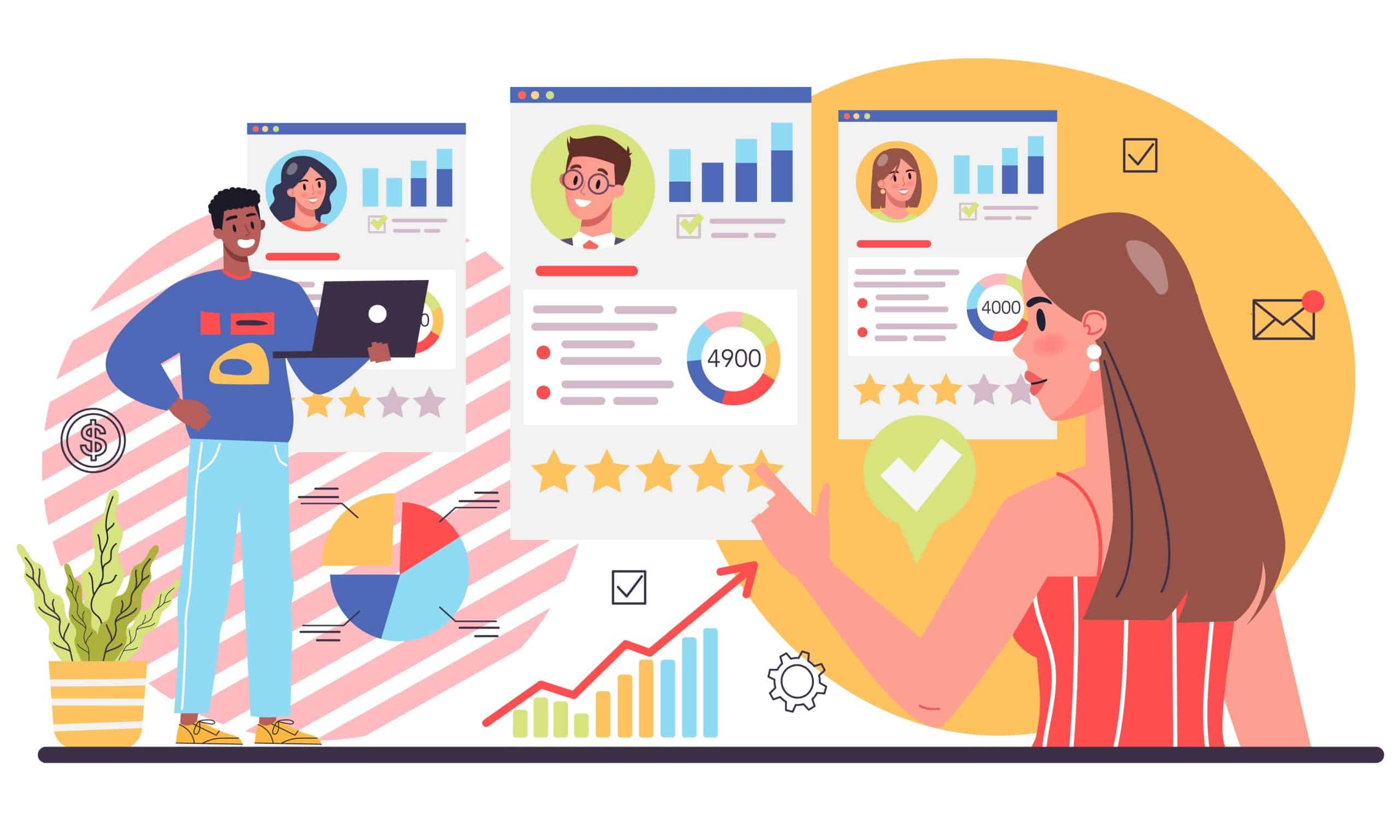Employment data can be a valuable resource for your organization. Whether you need to recruit new employees or evaluate the performance of current employees, employment data is important.
However, collecting and analyzing employment data can be time-consuming and expensive. Web scraping is one way to collect employment data for better hiring by automating the process. This article will explain why web scraping employment data is a good idea and how to go about it.
Why Scrape Employment Data?
Finding the top-quality talent you need for your company is essential to success, but it can be time-consuming and tedious.
Companies need to know a lot about the pool of available workers so they can find suitable candidates for new jobs. One way to do this is to “scrape” data from online job boards, which is an easy way to get a lot of information about applicants at once.
Scraping is an automated process that allows you to collect large amounts of data from websites and other sources without having to actually visit each website. As the word “scraping” suggests, it involves using a tool (or script) to get all the information from a website and store it in a database.
This is great because it makes finding candidates on job boards and other sites much easier. You can just let the tool do all the work for you.
How is Employment Data used?
Employment data is an essential tool for companies. It can be used in a variety of ways, including:
1. Recruiting the best talent
Building a talent pool
Employment Data helps companies build a talent pool of candidates based on their location and other factors like their skills, experience, education, and more. This makes it easier for companies to find the right people for their jobs without spending too much time or money.
Evaluating Candidate’s qualifications
Employers use employment data to figure out if a candidate is qualified by looking at their education history and work experience. It also helps them identify any gaps in a candidate’s resume that need to be addressed before they hire them.
Collecting Candidate’s contact details
Employment data collection can also get a candidate’s contact details so recruiters can easily contact them if needed. This makes it easier for recruiters to get to know potential employees while they are still job hunting.
Targeting candidates based on their location
You can also target candidates based on where they live with the help of employment data. For instance, you’re opening a new branch office and need to hire people with certain skills. You can use employment data to make sure that your ad reaches people who live near the new office.
2. Labor Market Analysis
Understanding salary ranges
Employment data helps understand salary ranges. This is especially true when figuring out how much to pay your workers based on the information you have. When you know how much other people in similar jobs make, it’s easier to figure out what your employees deserve.
Identifying job requirements
Employment data can help determine the skills and experiences needed for a certain job. This can help you improve your hiring process, find candidates who are a good fit for the job and make better interview questions.
Creating competitive job offers
Employment data can be used as an aid when creating competitive job offers. You can use it as part of your strategy for negotiating a salary. With it, you can find out what other companies pay, so you can pay more than they do, but not so much more that it will discourage potential candidates from applying!
How to Scrape Employment Data?
If you’re looking for a way to scrape employment data from the web, there are a few options.
Hiring a web scraping service
This is one way to start scraping the web. There’s nothing you need to learn. You just need to hire them and let them do the job. This may be the easiest way, but it can be expensive, and you won’t have full control over the process. Web scraping services can cost between $350 – $2500 per project, plus a monthly maintenance fee of $60 to $500.
In-house web scraping setup
This is more time-consuming and requires some technical knowledge. In-house web scraping setup costs are high, especially when hiring tech people. It can also be hard to maintain because scripts must be changed or rewritten when website layouts or codes change. But it gives you complete control over what your scraper scrapes and how often it runs.
Using a web scraping tool
Web scraping tools are free or cheap programs that let you get information from websites, such as employment data. They are also scalable as they support projects of all sizes. Web scraping tools are much easier than coding. Some of them, though, take a long time to learn. There can also be problems with compatibility, and some of them don’t have a CAPTCHA solver.
Why use Proxies in Web Scraping Employment Data?
Web scraping is legal. But most sites keep web scrapers from hanging around. This is because web scrapers send too many requests, which can slow down or even crash their sites.
To avoid being blocked by these anti-scraping systems, you’ll need proxies. They act as gates between your computer and the internet. They hide your IP address, so anti-scraping systems won’t stop you from using web scrapers.
Apart from avoiding blockage, proxies can also speed up your scraping process. By rotating the proxy, each request you make will come from a different IP. This will make it look like different users are making the requests. So, scrapers can send many requests to the site without getting blocked. This makes it easier for them to scrape a lot of data quickly.
How to Choose the Best Proxy for Web Scraping Employment Data?
When picking the best proxy for scraping employment data, you must consider a few things.
First, you need to decide what features you want. Every proxy is different and can do different things. You should figure out what features you need to scrape employment data, like if you need to support JavaScript or if you want to be able to use proxies from different countries.
Second, find an eligible proxy service provider. There are many providers of proxy services on the internet. You can find them by searching for “proxy service” in your browser’s search bar. Before you sign up with a provider, make sure they are real and trustworthy. You don’t want to give your personal or credit card information to a scammer!
Next, find a good balance between price and performance. You need to think about how many proxies you need and how much bandwidth each one will use. You should also consider whether they offer free trials so you can try them out before spending money on them for a long time.
Finally, consider customer service. Not only is it important for providers to have excellent technical support, but they also need to have great customer service! You’ll need someone who can answer any questions or concerns that come up while you’re using their services. This will make sure that everything goes smoothly.
Conclusion
Web scraping has become a popular way to find out about job openings and the people who apply for them.
Employment data can help you decide who to hire by giving you a clear picture of how the market looks and what kind of talent is out there.
You can find the best people to fill your open jobs by web scraping employment data. It also gives you an advantage over companies that don’t use this method, so it’s well worth your time.



